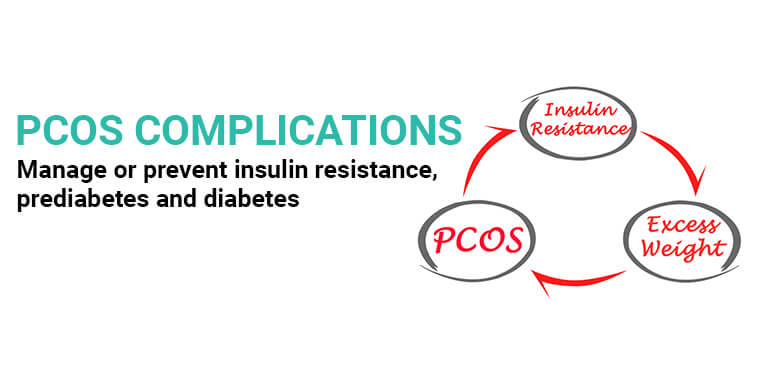We know that some women with PCOS tend to struggle with insulin resistance. We also know that a woman with PCOS is at a risk of developing prediabetes and later on Type 2 Diabetes. In this article we will talk about how are all these things related and how can we manage these things with a PCOS Diet.
Insulin resistance in PCOS
The first thing to understand is that insulin resistance is closely linked with chronic inflammation and since chronic inflammation is one of the consequences of PCOS, it puts us at a risk of developing insulin resistance. Inflammation forces our cells to slowly losing their sensitivity to insulin. This forcing our body to release more insulin for our cells to respond. Ultimately, women with PCOS carry consistently high insulin level and this is called insulin resistance.
Symptoms of insulin resistance
How will you know if you have insulin resistance? Well the symptoms of Insulin resistance could be lethargy, hunger, brain fog or difficulty in concentrating and high blood pressure. However, having these symptoms does not necessarily mean ou have insulin resistance. So, the only way to be absolutely sure if you have insulin resistance is to consult your doctor and go for blood test.
Prediabetes in PCOS
If your insulin resistance remains unchecked and untreated, it could develop into Prediabetes which means that your blood sugar is consistently on the higher side. This indicates that your cells are losing their sensitivity to insulin and some of the glucose remains in your blood, because insulin is unable to clear it. Fasting blood test will confirm if you are prediabetic or not. Most importantly, if your insulin resistance and high blood sugar level remain untreated, you could develop Type 2 Diabetes.
Type 2 diabetes in PCOS
Studies have confirmed that 40% women having PCOS develop Type 2 Diabetes by the age of 40. This happens because our blood sugar level continue to rise as our body loses its sensitivity to insulin or it can not produce enough insulin. Symptoms of Type 2 Diabetes could be constant thirst, Frequent urination, Increased hunger, feeling extremely tired and sudden loss of muscle mass.
Type 2 Diabetes can have serious complications so you need to make sure that you get it investigated early so that its treatment is easier.
Good news – You can keep yourself safe from all of these conditions
It is not necessary that you develop any of these health disorders if you have PCOS. There are many effective ways that can prevent or even reverse these complications.
Follow a good PCOS diet
It’s really important that you are eating well to manage your PCOS condition. It will help in managing your insulin levels as well as reduce any internal inflammation that you may be struggling with. You can read our other articles where we have discussed about PCOS diet and foods to consume and avoid if you have PCOS.
Exercise
Research has shown that exercise is crucial in managing chronic inflammation and it also helps to increase the body’s sensitivity to insulin. Even walking for about an hour a day can greatly improve insulin sensitivity. So, it doesn’t really matter what exercise you do, just stay active and moving. The more exercise you do, the better.
Supplements
There are some important supplements that you can consume to manage insulin sensitivity and inflammation like omega 3 and inositol. You can learn about the important supplements for PCOS in our other article.
The takeaway
PCOS attracts many other health complications if left untreated or ignored. But following a good PCOS diet, exercising regularly and taking some supplements can really help in improve the symptoms and preventing future diseases.

